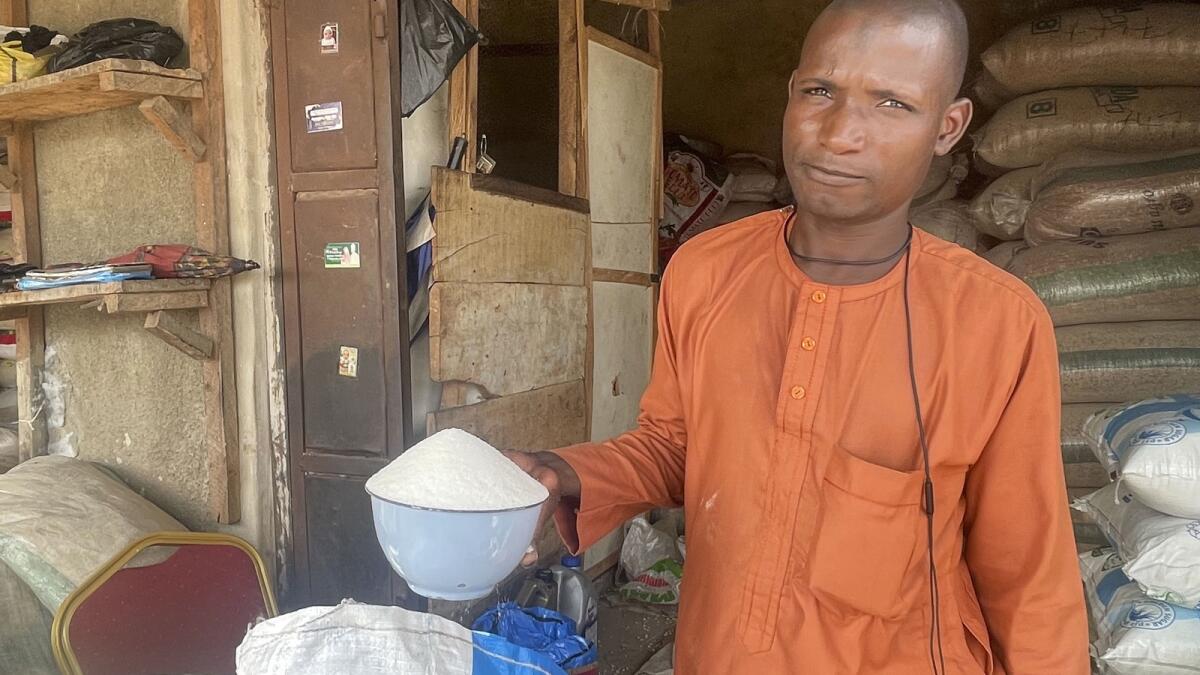Rising Sugar Prices Devastating Bakeries and Consumers in Nigeria
The sudden surge in sugar prices has led to disastrous consequences in Nigeria, leaving the country’s population struggling to cope with the skyrocketing costs. Ishaq Abdulraheem, a Nigerian baker, has been forced to cut his production in half due to the unprecedented spike in sugar prices. For many other bakers in similar situations, the soaring costs of essential ingredients like sugar have led them to close their businesses permanently. The implications of this crisis are dire, particularly for a nation where bread serves as a staple food for over 210 million people.
Global sugar prices have seen a rise of 55% over the past two months, largely attributed to lower supplies following the impact of dry weather on harvests in major sugar-exporting countries like India and Thailand. This shortage has presented monumental challenges for developing nations that are already grappling with food shortages and trade bans. Climate-related phenomena such as El Nino, coupled with the war in Ukraine and currency devaluation, have further worsened the situation, particularly for poorer nations.
The Food and Agriculture Organization of the United Nations (FAO) has projected a 2% decline in global sugar production for the 2023-24 season, leading to a substantial loss of approximately 3.5 million metric tons compared to the previous year. This scarcity has been exacerbated by the increased use of sugar for alternative purposes such as biofuel production, resulting in historically low global sugar reserves.
Sub-Saharan African countries, like Nigeria, heavily rely on sugar imports to meet their domestic consumption demands. Nigeria, which imports 98% of its raw sugar, has implemented measures to improve domestic sugar processing. However, these initiatives are long-term solutions and are not immediately beneficial in alleviating the current crisis.
The ongoing disruption in global sugar supply has also directly impacted countries such as India and Thailand, two of the world’s leading sugar producers. Both nations have experienced sharp declines in sugar production due to unfavorable weather conditions. In India, sugar output is projected to decrease by 8%, leading to restrictions on sugar exports. Thailand, which saw a 15% dip in sugar output in October, has implemented price controls as a countermeasure to address the challenges faced by sugar producers.
Looking ahead, Brazil’s forecasted increase in sugar production offers a glimmer of hope; however, its impact is expected to materialize in 2024. In the meantime, concerns over a further decline in global sugar reserves persist, with population growth and rising sugar consumption compounding the challenges.
The consequences of these developments are being acutely felt by consumers in Nigeria, where bakeries have had to pass on increased production costs to the public. This has resulted in a significant rise in the prices of bread, a primary source of sustenance for lower-income households. The Nigerian Bakers’ Association has highlighted the dilemma faced by bakers, emphasizing the necessity of balancing the need for profitability with the affordability of essential food items for the masses. As the crisis unfolds, the implications for food security and economic stability remain at the forefront of global concerns.
In conclusion, the impact of rising sugar prices on Nigeria’s economy and its people underscores a pressing need for diplomatic and strategic interventions to mitigate the risks posed by the current sugar crisis. As global leaders and stakeholders address the urgent challenges at hand, the imperative remains to facilitate equitable access to essential food resources and establish sustainable solutions for long-term food security.

I have over 10 years of experience in the cryptocurrency industry and I have been on the list of the top authors on LinkedIn for the past 5 years. I have a wealth of knowledge to share with my readers, and my goal is to help them navigate the ever-changing world of cryptocurrencies.

